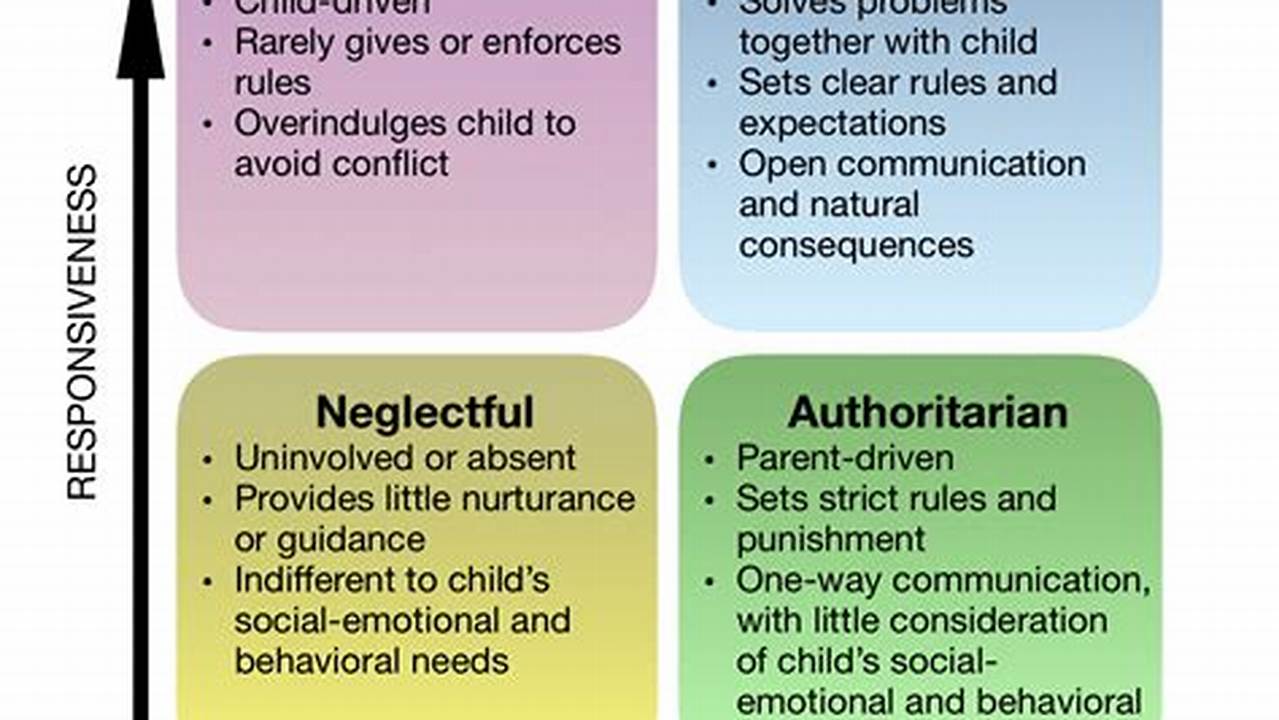Understanding the nuances of different parenting approaches is crucial for fostering a healthy and thriving family environment. Exploring various styles allows parents to identify strategies that align with their values and address the unique needs of their children. This exploration leads to more informed decisions, potentially improving communication, strengthening bonds, and promoting positive child development.
Importance of Parental Awareness
Recognizing one’s parenting style helps in understanding its impact on children’s behavior and emotional growth.
Adaptability and Flexibility
No single approach fits all situations; understanding different styles allows for adaptation based on individual child needs and developmental stages.
Improved Communication
Consciously chosen parenting strategies can lead to clearer expectations and more effective communication within the family.
Stronger Parent-Child Bonds
Tailoring approaches to each child’s personality strengthens connections and fosters mutual respect.
Positive Child Development
Employing appropriate strategies can positively influence a child’s self-esteem, resilience, and social skills.
Reduced Parental Stress
Understanding effective strategies can equip parents to handle challenging behaviors more confidently, reducing stress and frustration.
Enhanced Problem-Solving Skills
Different styles offer varied approaches to discipline and problem-solving, empowering children to develop critical thinking skills.
Creating a Supportive Environment
Understanding various approaches allows parents to create a nurturing and supportive environment that encourages growth and learning.
Building Family Cohesion
Consistent application of chosen strategies promotes stability and predictability, contributing to family cohesion.
Long-Term Benefits
Investing time in understanding parenting approaches can yield long-term benefits, contributing to well-adjusted and successful individuals.
Tip 1: Research Different Approaches
Explore available resources, such as books, articles, and workshops, to gain a deeper understanding of various parenting styles.
Tip 2: Self-Reflection
Consider personal values, beliefs, and experiences to identify which approaches resonate most strongly.
Tip 3: Observe and Adapt
Pay attention to how children respond to different strategies and adjust approaches as needed.
Tip 4: Seek Professional Guidance
Consult with child development experts or family therapists for personalized advice and support.
What are the common challenges faced when adopting a new parenting approach?
Common challenges include resistance from children, inconsistency in application, and difficulty adapting to new strategies.
How can parents determine which style is most suitable for their family?
Consider children’s temperaments, developmental stages, and family dynamics when selecting a style, prioritizing flexibility and adaptability.
Is it necessary to strictly adhere to one specific parenting style?
Rigidity can be detrimental. Integrating elements from different styles based on individual needs often proves more effective.
Where can parents find reliable resources for learning more about different parenting approaches?
Reputable books, articles, online resources, and consultations with child development professionals offer valuable guidance.
How can parents address disagreements about parenting styles within the family?
Open communication, compromise, and seeking professional mediation can help resolve disagreements and establish a unified approach.
What are the long-term implications of choosing a specific parenting style?
Parenting styles can influence children’s development, affecting their social skills, emotional regulation, and overall well-being into adulthood.
Ultimately, the most effective parenting approach is one that prioritizes the individual needs of the child within a supportive and loving environment. Continuous learning, self-reflection, and a willingness to adapt are key to successful parenting.


